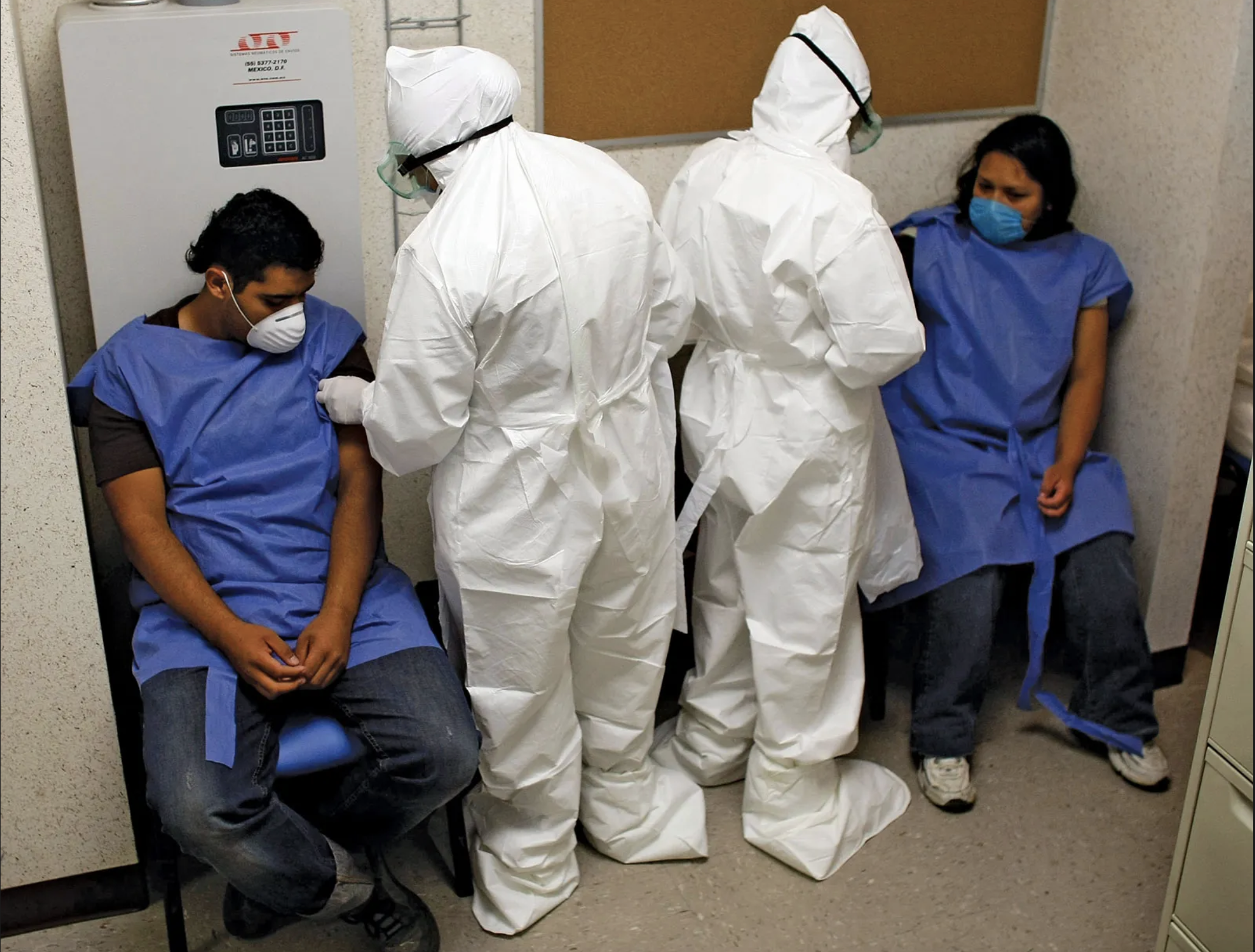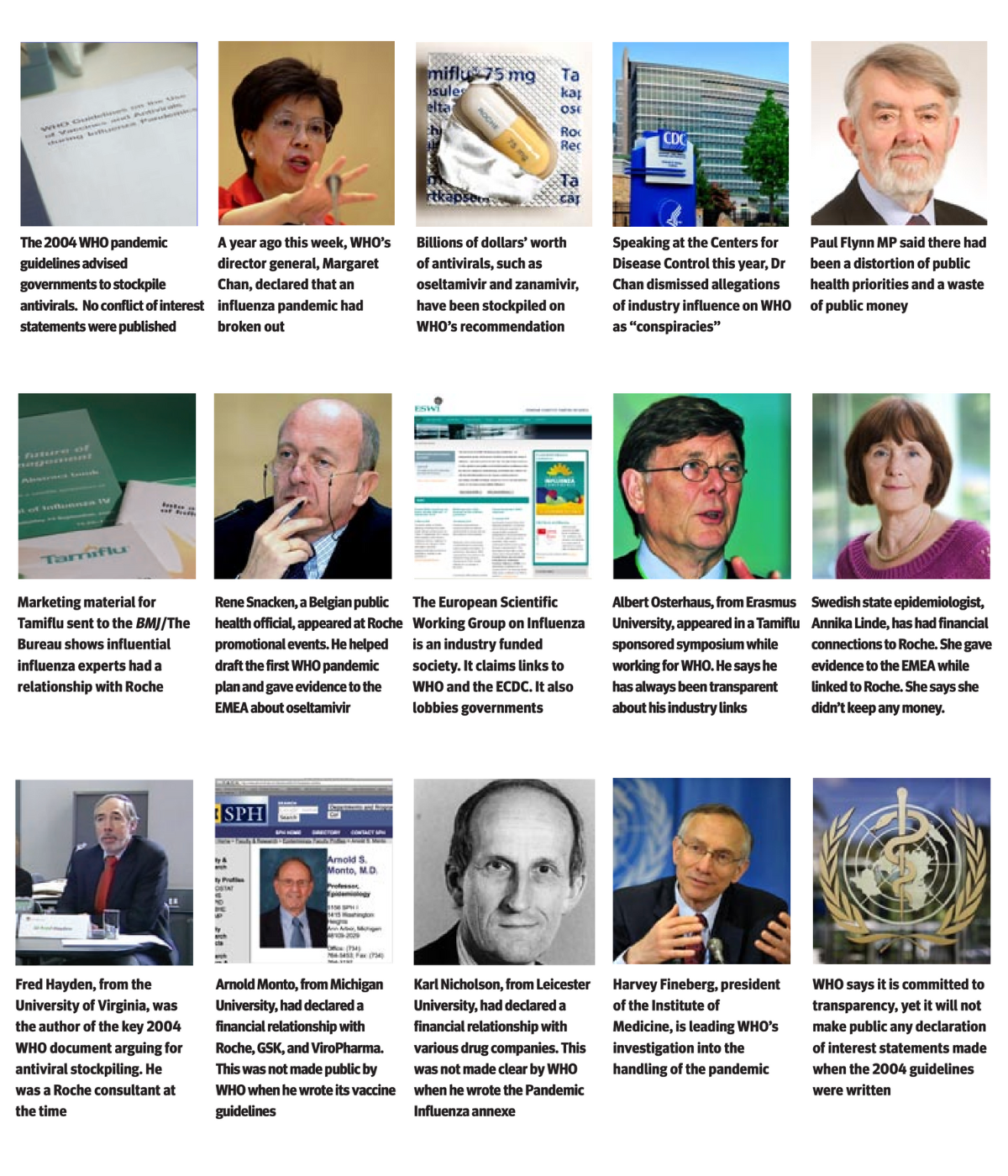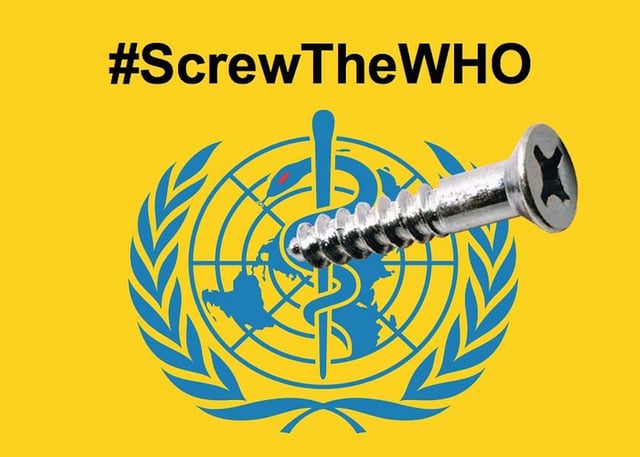The WHO and its old bag of tricks/Zahra Sethna
We never learned after the WHO pulled the trigger on a mild flu season in 2009
This week, as the world marks four years since the World Health Organization declared the coronavirus a global pandemic, we look back at a pattern that should have been heeded years ago.
[Not only did WHO change its definition of a level 6 pandemic to oblige Pharma so it could sell tens of billions of vaccine doses in 2009. WHO (then and now) employed a highly conflicted cadre of “experts” to manage both the 2009 swine flu and COVID in the most opportune way for Pharma. Drs. and Professors Fred Hayden and Arnold Monto, who concealed their conflicts back in 2009, were both instrumental in managing the false COVID narratives more recently.—Nass]
Picture this scenario: a virus begins spreading. People fall ill. The World Health Organization, responsible for global coordination of public health, kicks into action and declares a Public Health Emergency of International Concern (PHEIC). Billions of dollars change hands as countries scramble to stockpile the necessary medications and materials to protect and treat their populations.
Once the emergency passes, nations look back at how well the response was handled. Lessons are learned and shared. Criticisms and feedback include a lack of transparency around decision making, and a distortion of public health priorities. Some say huge sums of public money were wasted and the public was subjected to unjustified levels of fear. More importantly, people’s health was put at undue risk because vaccines and medications were authorized under fast-track procedures and rolled out before they had been sufficiently tested.
In the aftermath, a small but vocal cohort of people around the world allege the WHO created a fake pandemic for the benefit and profit of the pharmaceutical industry. WHO officials quickly dismiss these allegations as “conspiracies.” Later, investigations reveal that key scientists who advised on pandemic planning had deep conflicts of interest with pharmaceutical firms.
Sounds like a familiar story, right? Sort of like a brief summary of the past four years?
Actually, everything described above happened 15 years ago, in 2009, during the outbreak of pandemic influenza A 2009-H1N1.
Don’t believe it? Go ahead and read the full text of a 2010 investigation in the British Medical Journal, linked in the image below.
Some of the key questions investigators Deborah Cohen and Philip Carter raised include:
-
whether it was appropriate for the WHO to take advice from experts who had financial and research ties with pharmaceutical companies producing antivirals and influenza vaccines
-
why key WHO guidance was authored by an “expert” who had received payments from the manufacturers of the two antivirals being stockpiled during the so-called pandemic
-
why the head of the WHO received guidance from an emergency committee whose members were kept secret from the public
Ultimately the journalists asked whether major public health organizations were able to effectively manage the conflicts of interest inherent in medical science.
Given the four-year anniversary of the WHO’s declaration of the global COVID pandemic, it’s also important to ask why so little attention was paid to this report when it came out in 2010. Perhaps if we had been paying more attention to what happens behind the scenes, we could have been more vigilant this time around.
We’re not entirely to blame, though. As usual, we have been underserved by the media watchdog. To wit: in June 2010, BBC wrote a 350-word piece on the BMJ investigation, which didn’t even include one interview, instead quoting straight from the WHO’s website. In the US, ABC News covered the story and quoted an inexplicably anonymous government source who tepidly defended the WHO’s handling of the pandemic. Why wasn’t this person able to be named?
“The WHO handled the outbreak in a very measured and appropriate manner,” he said. “Their decisions were driven by the existing and evolving conditions at the time and what the best scientific information was telling us. It’s very easy to look back through a 20-20 lens and essentially be an armchair quarterback.”
Addressing the possibility of industry-influence on WHO’s decisions, the spokesman said, “The WHO based its decisions on strong public health considerations and I don’t think there was any indication from our perspective that their decisions were influenced by industry in any way.”
In a better world than the one we live in, the BMJ investigation and its shocking revelations would have raised serious concerns about the WHO’s credibility and effectiveness. The troubling findings would have led to public calls for a radical shift in global health governance and maybe even a tearing down of the WHO, replacing it with something more competent, if at all.
Instead, in 2023 the world was asked to celebrate the 75th anniversary of this unaccountable, corrupt, and conflicted cabal. What we have instead of a global institution guided by principles of integrity, independence, and serving the best interests of public health is the marketing and distribution network for the pharmaceutical industrial complex.
And now, this unprincipled global institution is plotting the “next pandemic” and working on furthering the administrative and logistical trappings that will allow them and their “stakeholders” to profit handsomely through public-private partnerships while we the people sit idly by and suffer the consequences of whatever they plan to unleash.
The hope for reform of such an organization has long passed. Given the WHO’s inability to lead effectively in times of crisis, as evidenced not just by the COVID pandemic but by the 2009 H1N1 debacle, is there any other choice but to shut it down? It’s clear we cannot — and should not — trust this body, which has shown us by its actions that it puts commercial interests before public health.
It’s time for us all to wake up and start demanding change, not just for our own sake but for the sake of those generations yet to come.
and
— along with the folks at The Global Health Project and Door to Freedom — have been doing great work exposing these issues and providing tools to take action. Be sure to follow them and support their work.



